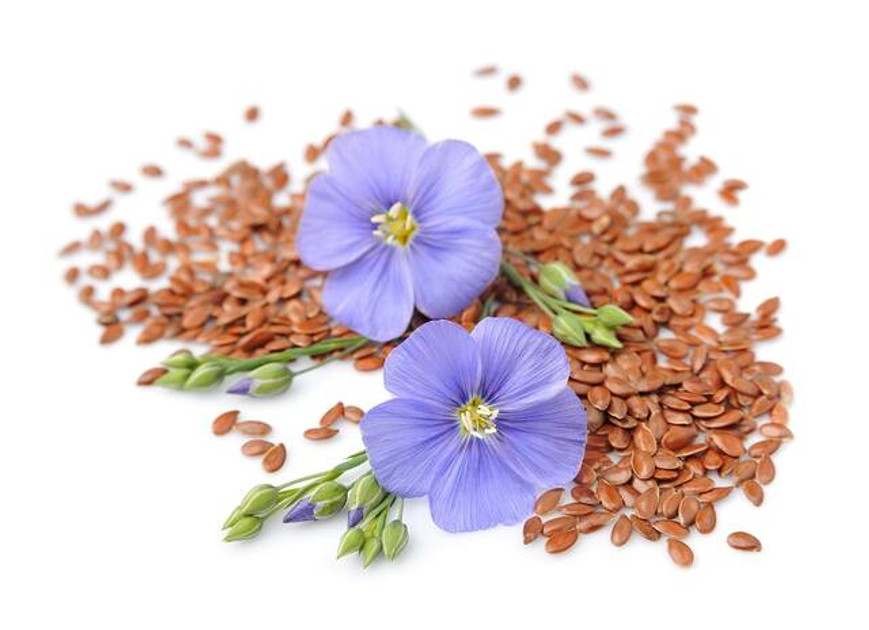What is Flax Seed?
Posted by DrNatura on Mar 31st 2022
Flax Seed(Linum usitatissimum) is cultivated worldwide for its many uses. The dry, ripe seeds of the flax plant are used medicinally. There are over 200 species of annual and perennial plants in the flax genus.1
What it is used for: Flax seed is used to help bowel conditions such as chronic constipation, irritable colon, diverticulitis, and colons damaged by the overuse and abuse of commercial laxatives.2 Because its volume increases after ingestion, flax seed helps initiate intestinal persistalsis.3 Additionally, it helps regulate the digestive tract by absorbing up to eight times its own weight in water and thus helping material to move more quickly through the intestines; some suggest that in the process of moving through the intestines, it may also bind to toxic substances and carry them out of the body.4 Though less well known, flax seed is also considered to have anti-inflammatory, anticancer, and cardioprotective characteristics and effects.5
Research Highlights: Flax has been shown in many studies to have beneficial effects in the human digestive system, but has also proven to have cholesterol-lowering and cardioprotective properties. In one study, flax seed reduced serum LDL cholesterol levels significantly.6 Another study highlighted its ability to lower serum lipids and inhibit coagulation.7 Additionally, research has confirmed the effectiveness of flax seed at treating inflammatory disorders such as rheumatoid arthritis; one study found a reduction of arthritis-related cytokines by as much as 31%.8
Note: Sufficient water must be taken with flax seed to prevent increased constipation and to promote defecation.
----
Disclaimer: This information is meant to be used for educational purposes. These statements have not been evaluated by the Food & Drug Administration. These ingredients and DrNatura is not intended to diagnose, treat, cure or prevent any diseases.
As with any medical information on health, it is always best to check with your personal physician who knows your medical history best since they are more qualified in giving you the best recommendation. Our information, advice or recommendation is not intended to be a substitute for professional medical advice, diagnosis, or treatment. Always seek the advice of your physician or other qualified health provider with any questions you may have.
References:
1. The Complete Guide to Natural Healing. (2000). International Masters Publishers, AB. 1:103.
2. Armstrong, D. (2001). Herbs That Work. Ulysses Press, pg. 51.
3. PDR For Herbal Medicines, 3rd ed, (2004). Thompson PDR, pg. 329.
4. Ibid.
5. Ibid.
6. Ibid.
7. Ibid.
8. Ibid.


